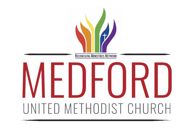
17 Tell people who are rich at this time not to become egotistical and not to place their hope on their finances, which are uncertain. Instead, they need to hope in God, who richly provides everything for our enjoyment. 18 Tell them to do good, to be rich in the good things they do, to be generous, and to share with others. 19 When they do these things, they will save a treasure for themselves that is a good foundation for the future. That way they can take hold of what is truly life.
Reflection
“What is truly life” or, in some translations, “the life that really is life.” That’s always been what’s stood out in this passage for me. Not because of what it says, but really, because of what it doesn’t say. When we read this phrase, it implies that there must be a life that really isn’t life – a life that pretends to be, but isn’t.
Do you know what I mean? Sometimes we get obsessed with things that don’t matter: status, position and all the acquisition required to demonstrate how you’ve achieved these things. The life that really isn’t life is infatuated with self – it’s self-important, self-referential, self-promoting.
It’s boring and counter-productive to spend all your time looking in the mirror, though. At some point, you come to realize that the real action is out there – in the places where your life bumps up against all the other lives who share this world with you. Gazing at your reflection, like a dog barking at itself in the mirror, doesn’t get you anywhere.
If the choice is between a real life oriented towards others and a false one oriented only toward self, then you know which one you must choose.
By Joe Monahan
For Pondering & Prayer
What are the components of a “real life” for you? Have you had experience living a life that felt “false” to you? What was that like?
Can self-reflection ever be a path toward God? Why or why not?
